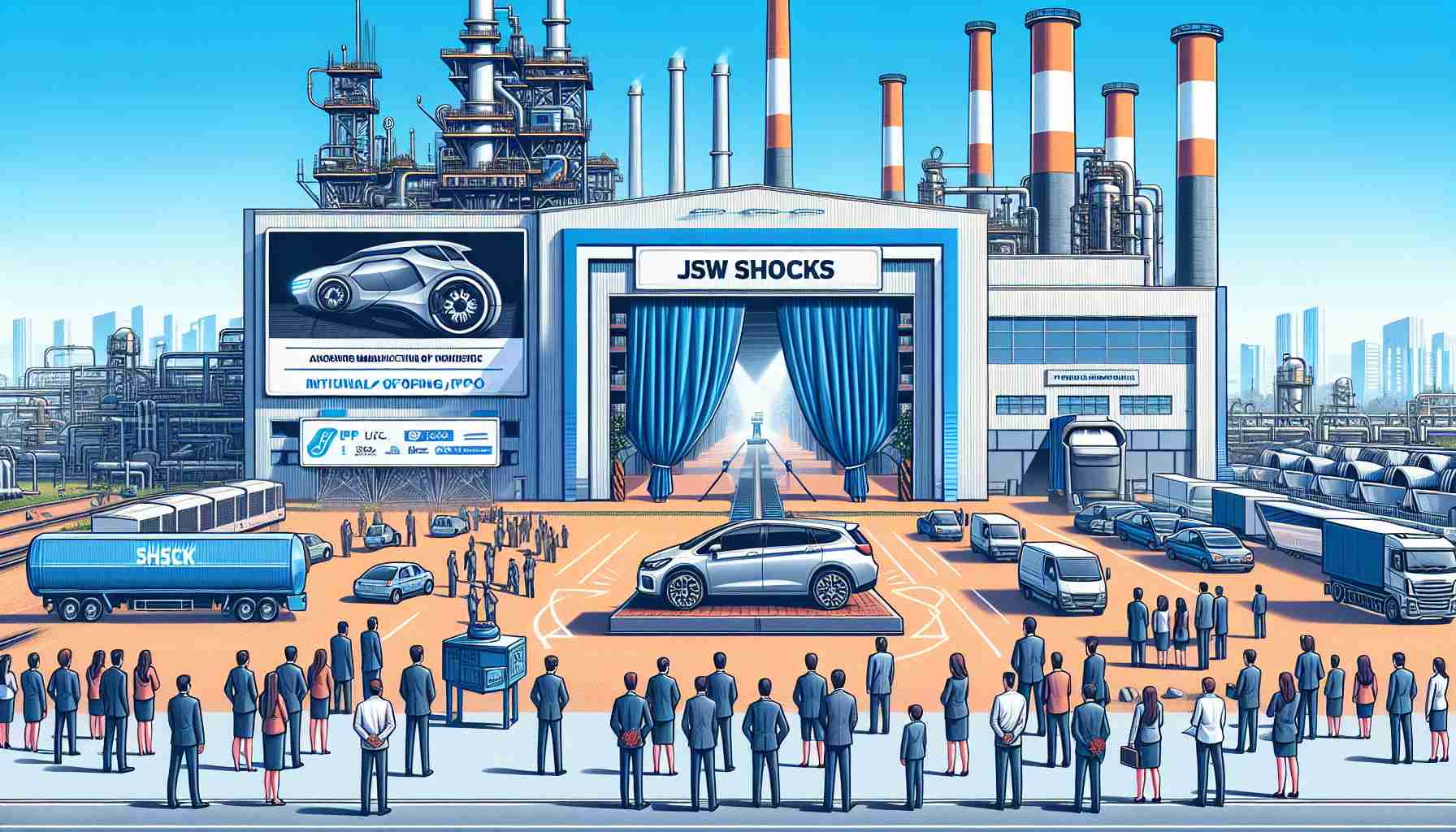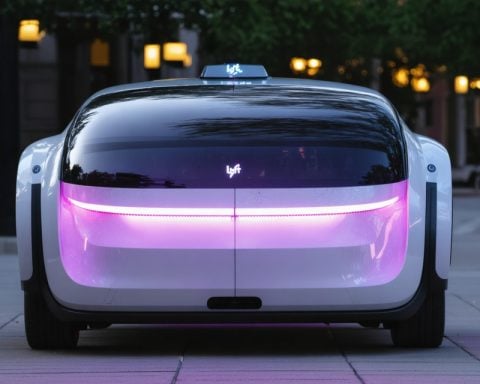In a bold move signaling a dynamic shift in its business strategy, Sajjan Jindal, Chairman of JSW Group, has unveiled ambitious plans to enter the electric vehicle (EV) market while also preparing to launch an Initial Public Offering (IPO) for its cement arm. This dual announcement marks a significant moment for JSW as it seeks to expand its footprint in burgeoning industries.
JSW’s Electrifying Future
The decision to venture into the electric vehicle sector is seen as a strategic maneuver as the world accelerates its shift towards sustainable technologies. JSW plans to develop a production line focusing on cutting-edge EV technologies to cater to an eco-conscious market. With this move, JSW aims to pivot towards a future-aligned business model, leveraging its expertise in innovation and engineering.
Cementing Growth with an IPO
Meanwhile, JSW’s plans for an IPO in its cement business are geared towards capitalizing on the booming construction industry and expanding its current production capabilities. The funds raised will likely be used for capacity expansion and upgrading facilities to more sustainable practices. This step aligns with the global emphasis on sustainability within the infrastructure space.
Implications for the Market
These announcements are poised to have far-reaching implications for investors and the sectors concerned. The EV market, already heating up with competition, will see a new formidable player in JSW, while the IPO will offer investors an opportunity to partake in a promising venture. Both initiatives reflect JSW’s forward-thinking approach and commitment to align with emerging global trends. As these plans unfold, they may redefine the contours of the automotive and construction industries in India and beyond.
JSW’s Strategic Leap into a Sustainable Future
The environmental impact of JSW Group’s entry into the electric vehicle market is both profound and promising. As the global community grapples with climate change and environmental degradation, the push toward sustainable transportation has become paramount. Electric vehicles are heralded as a critical component in reducing carbon emissions and mitigating environmental harms associated with traditional fossil fuel-based transportation systems. By investing in cutting-edge EV technologies, JSW not only aligns itself with eco-friendly innovations but also aids in decreasing reliance on non-renewable energy sources.
From an ecological perspective, widespread adoption of electric vehicles can significantly lower air pollutants, leading to improved air quality and public health outcomes. Considering urban areas are often plagued by vehicular emissions, JSW’s strategic move can contribute to cleaner, more sustainable cities.
On a broader scale, the economic implications of JSW’s strategy are substantial. Transitioning to EV production will likely stimulate job creation in high-tech sectors, fostering innovation and skill development among the workforce. Additionally, JSW’s ambition to launch an IPO for its cement arm creates avenues for sustainable growth within the construction industry. By investing in more sustainable practices, the company not only enhances its competitive edge but also sets a standard for industry peers.
These strategic decisions by JSW reflect underlying trends that could define the future trajectory of global industries. With transportation and construction being crucial components of economic infrastructure, the shift towards sustainable practices is a vital trend influencing future human development. Aligning technological innovation with environmental stewardship, businesses like JSW are paving the way for a greener economy, which is integral to the sustainable progression of our society at large.
For humanity, these initiatives signify a transition towards a more sustainable coexistence with our planet. As businesses adopt greener technologies, the ripple effect could foster cultural shifts towards eco-conscious lifestyles, setting a precedent for future generations to live more harmoniously with the environment. In the grand scheme, the sustainable strategies championed by companies like JSW are more than business ventures; they are part of a vital blueprint for a thriving and balanced world.
JSW’s Bold New Ventures: What It Means For Investors and the Future Market
Strategic Expansion into the Electric Vehicle Market
JSW Group is making headlines with its announcement to tap into the electric vehicle (EV) market. This venture not only aligns with global sustainability trends but also taps into one of the fastest-growing sectors in technology. The company plans to invest in cutting-edge EV technologies, aiming to cater to environmentally-conscious consumers.
Features & Innovations: JSW’s approach involves developing a state-of-the-art production line for EVs, integrating advanced engineering and innovative manufacturing processes. This positions them as a serious contender in the expanding EV market, which is characterized by a growing demand for vehicles that prioritize sustainability and reduced emissions.
Market Opportunities: The global shift towards EVs is supported by favorable government policies, increased charging infrastructure, and rising fuel prices, creating substantial growth opportunities for new entrants like JSW.
JSW Cement’s IPO: A Strategic Move in a Growing Industry
JSW’s upcoming IPO for its cement arm is another significant strategic decision. This move is intended to capitalize on the robust growth of the construction industry, driven by increased urbanization and infrastructure development.
Use of IPO Funds: The raised capital will likely support the expansion of production capacities, modernization of existing facilities, and incorporation of more sustainable practices. This aligns with the global trend towards sustainable development within the infrastructure and construction sectors.
Investor Implications: For potential investors, JSW’s cement IPO provides access to a high-growth sector with promising returns amid an increasingly urbanizing global landscape.
Controversies and Challenges
Competitive Landscape: Entering the EV market might present challenges, particularly due to stiff competition from established players like Tesla and emerging ones from China. Pricing strategy, technology differentiation, and consumer adoption will be critical factors determining JSW’s success.
Sustainability Goals: As JSW promotes sustainability through its new ventures, it may face scrutiny concerning its implementation of environmentally friendly practices, particularly in its traditional sectors.
Future Predictions and Market Insights
Sustainability Trends: The push towards EVs and sustainable building materials aligns JSW with global sustainability trends. Their commitment can set a benchmark for other companies in traditional manufacturing sectors considering green transition.
Economic Impact: These strategic moves can bolster JSW’s market presence, significantly impact India’s economy, and reinforce the country’s position as a burgeoning hub for sustainable technologies and manufacturing innovations.
Through these initiatives, JSW aims not only to enhance its market standing but also to pivot towards a future-focused, sustainable business model that can adapt to changing global dynamics. For more information about JSW and its strategic initiatives, visit their official website.
















